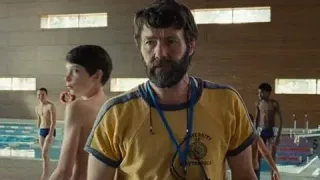August 7, 2023
FDA Ends Restrictions on Gay, Bi Blood Donors
Kilian Melloy READ TIME: 2 MIN.
Men who have sex with men (MSM) have long faced restrictions that others do not when it comes to donating blood. Exclusions based on sexual orientation are set to end Aug. 7.
"The American Red Cross, under a federal policy recently finalized by health regulators, will begin accepting blood donations on Monday from gay and bisexual men in monogamous relationships without mandates that they first abstain from sex," NBC New York reported.
As previously reported, the FDA's change in policy was first announced last January, with the new policy being finalized last May.
The initial restriction, imposed in the 1980s, was a lifetime ban on gay and bisexual men donating blood, for fear of transmitting HIV – the virus that causes AIDS – to others through the nation's blood supply. It wasn't until 2015 that the policy was revised, despite decades of progress in terms of screening and testing donated blood to ensure that pathogens would not be transmitted from donors to recipients. But the 2015 update was decried as homophobic, as it required that MSM refrain from sexual contact with other men – even their own partners or spouses – for a full year before being eligible to donate blood. No such restriction was placed on heterosexual men, regardless of their sexual habits.
Blood donor restrictions targeting MSM were further revised in 2020, partly in response to a need for donated blood during the pandemic, but the change simply shortened the length of time MSM were required to be celibate to three months. No change regarding donations from heterosexual men was implemented.
"While a step in the right direction, these updates didn't change the blunt assessment by the FDA that men who have sex with men are performing high-risk sexual behaviors and are themselves high-risk donors," noted an article from The Conversation last May.
"Researchers and gay rights advocates have long argued that time-based deferrals lack nuance and fail to realistically consider the differences in risk associated with the type of sex, type of relationship, number of partners and frequency of sexual encounters."
The new guidelines address those concerns, mandating the completion of a questionnaire asking about potential donors' sexual history over the previous three months, and dropping the former blanket ban on male donors who have had sex with other men in that same period of time.
Still, glaring exceptions remain.
"Potential donors who report having anal sex with new partners in the last three months will be barred from giving until a later date," NBC News pointed out.
Moreover, donors on PReP will "still be barred, until three months after their last dose," the NBC news article said. "The FDA noted that the medications, known as PrEP, can delay the detection of the virus in screening tests."
Also: "Anyone who has ever tested positive for HIV will continue to be ineligible to donate blood," the new report detailed.
But those criteria, while perhaps more likely to apply to MSM, still apply across the board.
The FDA's Dr. Peter Marks underscored that the revised policy makes donations more equitable, saying, "The implementation of these recommendations will represent a significant milestone for the agency and the LGBTQI+ community."






